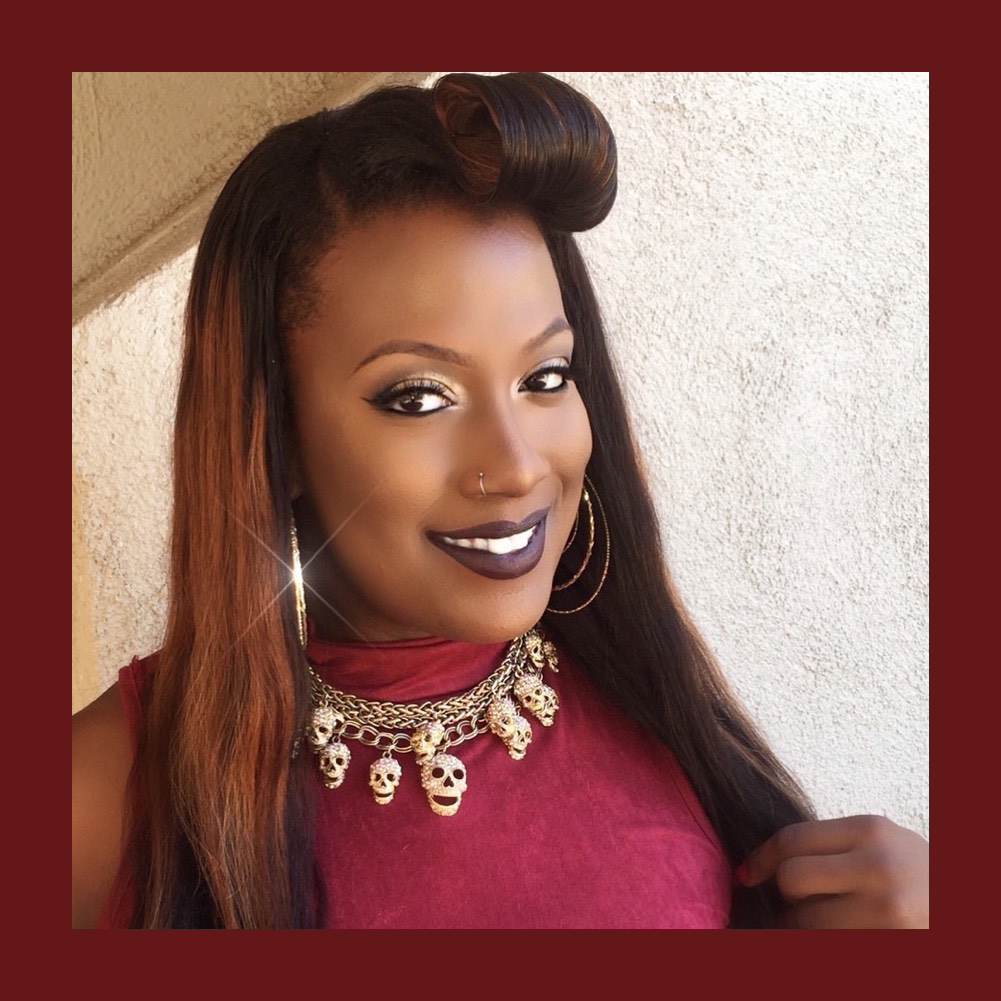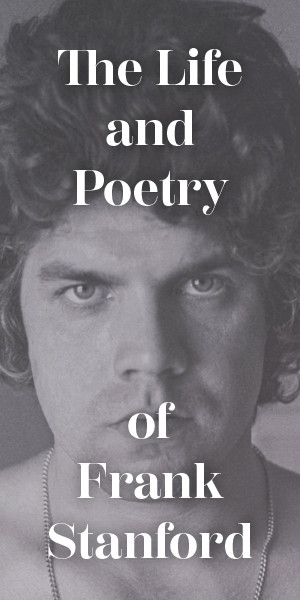Long Live the Queen of Memphis
Did Gangsta Boo know how strong she made us?
By Zandria F. Robinson

Photo by Drumma Boy
Our mothers and grandmothers had sung the blues, playing those old records that wore in us a grooved plight of what seemed like ten generations of long play. We was tired of carrying the load of all that spinning racket. But then here come you, busting open the door on that Mystic Stylez tape, which we heard at our cousin’s-friend’s-uncle’s-nem house on those afternoons when the sun was an arrow scattering dust. We realized this was what our mothers and grandmothers must have felt about the blueswomen, this flash of a mirror-spirit of recognition, of already being seen and known before we had even been born. Did we know you good as you knew us?
Hey, Whitehaven girl, or Blackhaven, as we used to enunciate in the direction of Graceland. The most wondrous kinds of girls came from Blackhaven. It was a place in the light and in the shadow, a time in between King’s death and after the end of the world. You were there. We remember. You say your sound came from Marvin Gaye, David Ruffin, Al Green, Bobby Womack, Nirvana, Madonna, Alanis Morrisette, Marilyn Manson, Lil’ Kim, Salt-n-Pepa, MC Lyte, and 8-Ball and MJG. We was listening to them, too, and we heard all them in you. We heard you in you, too. Could you hear yourself like we heard you?
In high school you became the First Lady of Three Six Mafia, claiming the throne for yourself from the church mothers and preachers who had hushed our pain, those hurts they said we was too pretty for but nonetheless kept happening just the same. The Devil’s Daughter come to deliver us through this evil. You were a different kind of girl from the kinds we were told we should be. We knew there had to be something else to being a woman-child millennial in this unpromised land. Something like being beautiful, punk, complex, prickly, loud, and volatile. You said you represented us, our kind of girls. You moved how we moved, danced how we danced, knew the erotic codes we were learning to survive the world intact. You were a girl among boys, and then a woman among men, and you held your own, and theirs, and everybody else’s because you were a brilliant black hole born of a gamma ray burst of light. A Leo Queen of Memphis, fixed fire. You were composed of so many women: Harriet with the shotgun, the duality of Big Mama Thornton, the wonder and wrath of at least two Bettys, including Wright and Davis, and those sacred mysteries that were our aunties and older cousins. You held all these women’s prayers and curses, integrating it all into this one whole being, this Lola Chantrelle. When Both Worlds *69 dropped and we heard “Mask 2 My Face” and “Can I Get Paid”? When we heard you with Outkast ‘nem on Stankonia? On “I’ll Call B4 I Cum”? You opened rooms in us we didn’t know were there, inviting us to our own parties in them that we didn’t even know was happening. How did you know about those rooms in us?
It was the ’90s, the end of the world, the Y2Ks, and we was scared for you like we was scared for ourselves. More for you because you was out in the world representing for us. Too much to hold in one body, maybe. We knew how the city could do you, how men could do you, how an industry could do you. You say you got screwed around a few times. You didn’t get what you were owed, so you had to go so much harder to break even. You learned everything by experience, the way we all did, since nobody wanted to yell “watch out!” before we bumped our heads. We was right mad about it when they would do you wrong, grumbling our complaints out one side, and cheering you louder, harder, until our throats cracked, out the other. We hoped you could feel the vibration of our fervent chants. We hoped it powered you through the heavier times, through the discouragement, confusion, and depression. Through the times to come when you would feel overlooked and underappreciated. Could you hear our praise poems?
Back then, we ain’t know you was making a whole region of rap with your voice and chest, though. That you was birthing genres and generations. That you would take us with you all cross the world and stay the very same Lola, a self-made woman. That we would be able to hear you, and therefore ourselves, too, in places we didn’t even know to dream of. That all the women that came after you would have some of your sound tucked in their mouths. All we knew was that you was the best thing. That everybody wanted you to be they guest, to put your voice and spirit on they songs. And that every time—OutKast, Run the Jewels, YelaWolf, Gucci Mane, Junglepussy, whoever it happened to be—you would bust open those doors like you did the first time, always a legendary feature. We said, there she go, that’s our girl Gangsta Boo, Queen of Memphis. Solo album after solo album, mixtape after mixtape. When you and La Chat joined together for Witch our hearts about flickered out. Your voice, its varied rhythms and registers, was always a surprise and then a wide smile. How is it that you could be anywhere in the whole wide world and still sound like you and us and home?
We became witches behind your anthems. We conjured money and cool and safety and freedom and boundaries and worth and fire and so much power. We cast our spells like you taught us, appealing to that great shadow in ourselves, that hidden bright-black darkness. We balanced the dark and the light, holding our crossroads how you showed us—sun and moon, sacred and profane, day and night, Mawu-Lisa. We wished and hoped and prayed a nigga would. Did you know how strong you made us?
Coming home from the road, the world, from your L.A. spot, back to our home, back to Memphis, you couldn’t wait to lay across Mama Boo’s bed and talk shit and sing Teena Marie’s “Out on a Limb.” We could feel Mama Veronica’s love of you out in the world, see her loving you with her Mama Boo love, the unparalleled comforts of home. When your Daddy flew home to be with the Lord, you missed him hard like we missed ours. We knew something about being both Daddy’s and Mama’s girls. Oh, how you loved your people, your family, your city. How you loved the little ones, the babies, the up-and-comings, the next generations. Your love was a lightning strike, curious and consuming and concerned, eclipsing everything. Were we worthy of the way you loved us so?
You knew you was an innovator and you stood tall in that space. You walked so the ones that came after you could run. You wrote. You rapped. You arranged. You produced. You sometimes preferred behind-the-scenes work to that out in the world. You said it was surreal listening back to yourself, talking about “where dem dollas at” at eighteen, shocked by all that you had written at such a young age, by your own raw talent, by the blessing you had on your head and in them pens. Then and now, it was always so real for us, like we could catch it and grab it up and hold tight to it. “Grounded, spiritual, and anointed as fuck,” you said, “plus common sense and street smarts.” That’s what Memphis gave you, and that’s what it took to survive as a still-creating, still-evolving forebear and architect of a living sound. Ancestor, what will you create next lifetime?
We wish that you felt deeply what we felt about you, like Tina Turner soaring over the crowd. You saw Lil’ Kim getting her flowers in fashion and music, and you loved to see it. “I am her, she is me, we are we,” you said about all women. You understood how connected we were beyond the lines drawn between us, the ones designed to limit and control. You were the blueprint, the Boo Print, and you were inspired and motivated by the new generations of women. You said it was about time for your flowers, too. We was glad to see Latto with you on Drink Champs offering them up. Glo gave you some, too. We wish there was more, so much more, before the end. We have been gathering them, and we hope they will be enough. Is now too late for a planet of flowers?
Because oh it hurt us so to hear the news about you flying home. We said, un-unh they play too much on here. They need to stop playing about Lola. Stop playing about Gangsta Boo, y’all. And then when it wasn’t no lie, and you didn’t raise up from the dead, we let out howls for mercy. They was mourning the loss of the idea of you; we was mourning the loss of the real you, our girl, ourselves, the friend to our minds out in the world. It must have been a lot to carry all of us and to do it with that trickster electricity and that big wry smile. You was slick an introvert. What a weight we must have been. Were we too heavy to bear?
“Okay, what’s next for Ms. Lola?” you asked yourself. Goodness gracious, you was so excited for what was next, and so was we. You had survived an industry that kills real quick, that zaps and saps and spits out what’s left. You let the water move you, the flow, and you were in the right places at the right times. 2023 was finna be up. You had so many stories left to tell. We wanted to hear all of them. Now we are playing the archive alongside that same loud long silent song. Did you know you were your own best thing?
We remember you, Lola, how Lucille remembered Thelma, how Toni remembered Baldwin, how Erykah remembered J-Dilla. You owed us nothing but gave us everything. What can we give you now?




